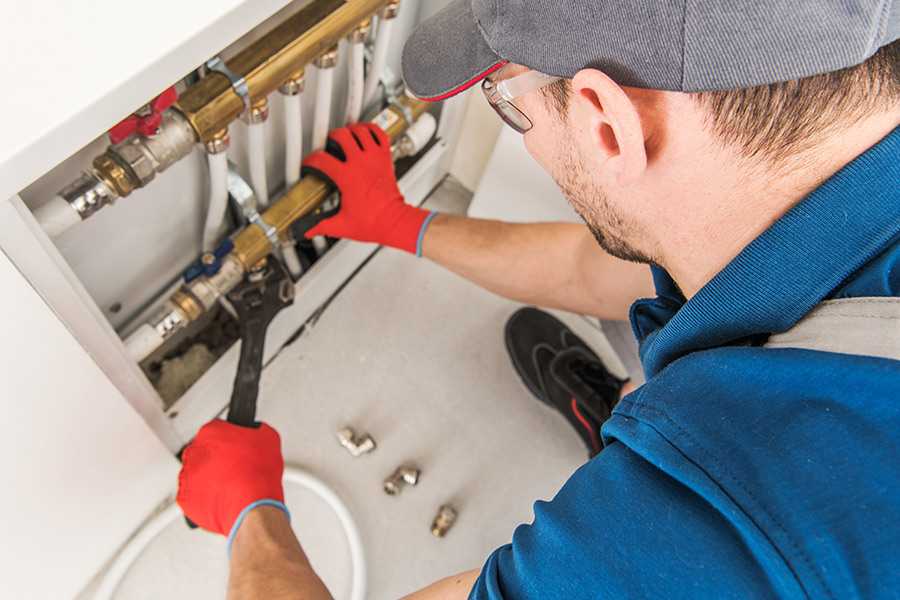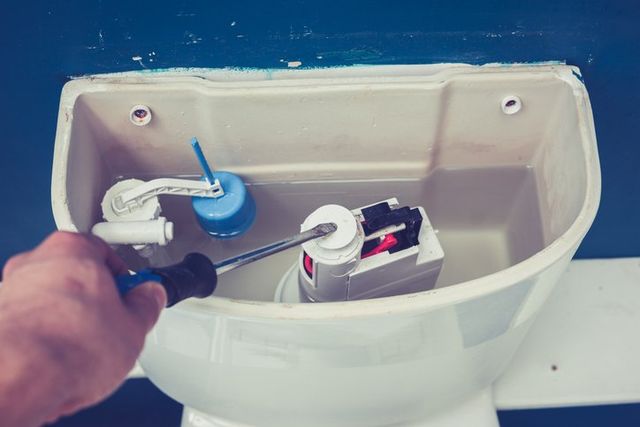Tackling the Most Frequent Hot Water Heater Emergencies
Tackling the Most Frequent Hot Water Heater Emergencies
Blog Article
The article below about Is Your Water Heater Leaking? is immensely insightful. You should check this stuff out.

A hot water heater is just one of one of the most vital fundamental home appliances that can be discovered in a house. With water heaters, you do not require to experience the stress of home heating water manually every time there is a demand to wash, wash, or the meals. However, there is constantly an opportunity that your water heater would certainly break down similar to a lot of mechanical devices.
It is very important to keep in mind any type of little malfunction and tackle it rapidly prior to things leave hand. Many times, your hot water heater begins to malfunction when there is a build-up of debris as a result of continuous usage. As a precaution, periodic flushing of your hot water heater is recommended to prevent sediment accumulation and avoid functional failure.
Typical hot water heater emergencies as well as just how to handle them
Insufficient warm water
It might be that the water heater can't support the hot water need for your apartment. You could upgrade your water heater to one with a larger capacity.
Changing water temperature level.
Your hot water heater can begin generating water of various temperature levels normally ice scalding or chilly hot. In this scenario, the first thing you do is to make sure that the temperature is set to the preferred level. If after doing this, the water temperature level maintains altering during showers or various other tasks, you could have a malfunctioning thermostat. There might be a demand to change either the heating or the thermostat unit of your hot water heater.
Leaky hot water heater tank.
A dripping container could be a sign of rust. It might create damages to the floor, wall surface and electrical devices around it. You might even be at threat of having your house flooded. In this situation, you need to shut off your hot water heater, allow it to cool, as well as carefully seek the source of the problem. At times, all you need to do is to tighten up a couple of screws or pipeline links in cases of small leakages. However if this doesn't work and the leakage continues, you could need to use the solutions of a professional for an appropriate replacement.
Blemished or smelly water
You need to know if the problem is from the storage tank or the water resource when this happens. You are particular that it is your water heater that is faulty if there is no funny odor when you run chilly water. The stinky water can be caused by rust or the accumulation of germs or sediments in the hot water heater storage tank. Once you observe this, you can try flushing out your storage tank or replacing the anode if the trouble lingers. The function of the anode is to clean out bacteria from your container. Because the anode rod substitute needs a comprehensive understanding of your water furnace, you will certainly require the aid of an expert.
Final thought
Some homeowners ignore little warning as well as minor faults in their hot water heater device. This only leads to further damage and a possible complete malfunction of your appliance. You need to handle your hot water heater mistakes as quickly as they come up to prevent more expenses and unnecessary emergency difficulties.
With water heaters, you don't require to go via the stress and anxiety of home heating water by hand every time there is a need to take a bath, do the washing, or the recipes. It may be that the water heater can not support the hot water need for your apartment or condo. Your water heater could begin creating water of various temperatures usually ice chilly or hot warm. If there is no amusing odor when you run cool water, then you are particular that it is your water heating unit that is malfunctioning. The stinky water can be caused by rust or the buildup of microorganisms or debris in the water heating unit container.
Why Is My Water Heater Leaking?
When a water heater bursts in a home, it is a shocking event, not to mention a messy one, and it could potentially cause a lot of expensive damage. If your hot water heater burst, you’re probably wondering why this happens and what to do next.
In general, the basic reason why hot water heaters burst is that there is corrosion within the tank, which can lead to the tank bursting at its seams. Unfortunately, there are several possible underlying causes that can contribute to water heater explosions, and it’s not always apparent which one is the culprit.
Sometimes there are risk factors or warning signs that could indicate a water heater explosion is imminent, but not always. In order to understand the risk factors that could contribute to a water heater exploding, it’s important first to understand the type of water heater that you have in your home.
What Are The Common Causes of Water Heater Leaks?
In general, it's a good idea to call a emergency plumbing company if you have any questions about the cause of your water heater leak. The most frequent reasons why water heaters leak are:
Drain valve
The drain valve is used to empty the tank during maintenance visits and replacements by plumbers and homeowners. The drain valve is also utilized by homeowners when cleaning the tank is required. Over time, the valve becomes loose, allowing water to flow through. Leaks from the bottom of the valve, on the other hand, suggest that the component isn't waterproof. This situation calls for the installation of a new drain valve. Homeowners may replace this themselves, but it's better to get advice from a professional plumber before you do so.
Too much pressure
Water heaters are affected by naturally occurring water pressure, just like any other plumbing component. The hot water that generates steam and fills the vacant space causes pressure in water heaters. When the steam has no where to go, the pressure becomes too high. Any crack in the heater allows water to escape, relieving some of the pressure. When the water temperature is set too high or when water enters the system at large pressures, the heater's pressure rises.

Do you like reading about Is Your Water Heater Leaking?? Create feedback down below. We'd be glad to find out your responses about this post. We hope that you come back again later on. If you liked our post kindly be sure to share it. Thank-you for your time spent reading it.
Ready when you are! Report this page